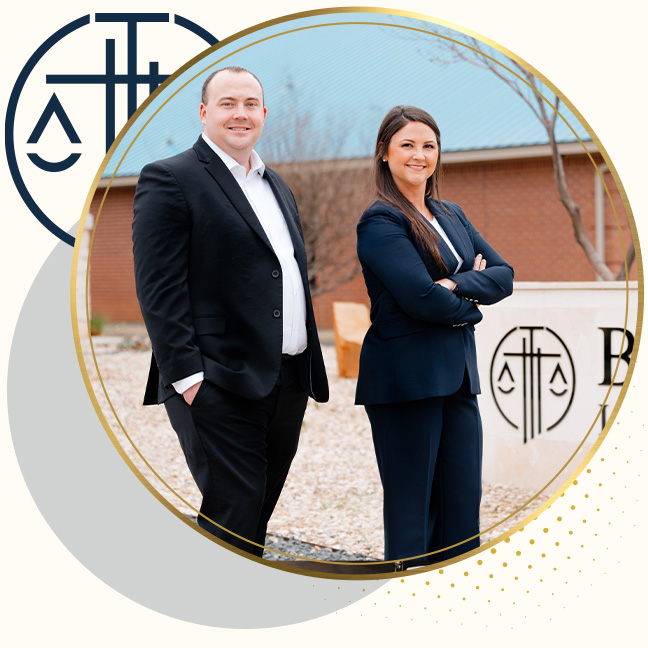
Lubbock Testamentary Trust Attorneys
Making end-of-life arrangements isn’t easy for anyone, but it lessens some of the pain and distress of those who survive you. A Lubbock testamentary trust lawyer can help you.
In Texas, a testamentary trust is created when someone passes away. This trust is outlined in the person’s last will or ordered by a court to manage the deceased person’s assets.
It doesn’t come into existence until the person dies, and when that happens, all the assets listed in the will go through probate before the court transfers them into the trust.
Before the person dies, they can change the terms of the trust as they wish. They can make it dependent on certain conditions, meaning the trust is created or altered only if those conditions are met.
Discover the Beck Law Firm Difference When Creating Your Lubbock Testamentary Trust
At Beck Law Firm, our dedicated team of experienced attorneys provides quality service adapted to your specific needs.
Life in Lubbock truly stands out, and your history speaks to that. We recognize the significance of having a legal ally who truly understands your needs, ensuring your legacy endures.


-
Meet Our Team Compassionate Legal Advocates
Read more about our firm and meet our dedicated legal team.
-
Read reviews Five-Star Client Testimonials
Read what past clients have said about working with Beck Law Firm.
-
Get Started Schedule A Consultation Today
Our team is ready to help. Reach out today.

Hear From Our Happy Clients
At Beck Law Firm, your satisfaction is our priority! See for yourself what our clients have to say about working with us.
-
"All the people I was working with were very kind and caring and handled all my things with complete professionalism."
Great Firm! They handled my probate and other legal forms I needed. They made the process less stressful for me and my family during a hard time we were going through. All the people I was working with were very kind and caring and handled all my things
- O.R. -
"Thanks for doing such a good job!"
Andrew, Haley and Bonnie were a great help in my sisters probate case. They handled all of the complicated legal issues and guided me through the process. Thanks for doing such a good job.
- J.S. -
"Thanks for doing such a good job!"
Andrew, Haley and Bonnie were a great help in my sisters probate case. They handled all of the complicated legal issues and guided me through the process. Thanks for doing such a good job.
- J.S. -
"Best in the West. Honesty Integrity."
Best in the West. Honesty Integrity. Quality representation from quality Individuals who embrace, educate, and serve their clients honorably in order to deliver dominating results.
2 for 2 here. Thanks Professor!- O.D. -
"We are so appreciative and highly recommend them!"
Andrew Beck was the absolute best lawyer we could have hoped for. Not only was the Beck Law Firm recommended to us, but Andrew also exceeded our expectations. Our family legacy was at stake and although we knew the obstacles might be overwhelming, we also
- T.F. -
"They Made It Easy"
The Beck Firm made setting up our wills extremely easy. What should have been a lengthy and intimidating process was made very simple. They were very thorough explaining the process and answering any questions we had.
- Trevor M. -
"I'll Definitely Be Back"
The Beck Law Firm is composed of a caring and kind team of legal experts who go above and beyond to understand and resolve your legal concerns. They were knowledgeable, resourceful, and efficient.
- Former Client -
"They Were Efficient and We Are Happy"
Good communication all the way through the process. All of our questions were answered quickly and in a way that made a somewhat complicated process easy to understand.
- Anthony G.
How Is a Testamentary Trust Different From a Living Trust in Texas?
A testamentary trust and a living trust are both legal arrangements used in estate planning, but they differ in key areas, especially in Texas:
Creation and Activation:
Testamentary trust: This trust is created through your last will and testament. It only takes effect after your death, as outlined within your will.
Living trust: This trust is established during your lifetime. You transfer your assets into it while you are still alive. It can be modified or revoked at any time.
Control and Management:
Testamentary trust: You maintain complete control of your assets during your lifetime, and the trust only exists after your death. The assets are typically subject to probate before being transferred into the trust.
Living trust: You retain control of the assets placed in the trust during your lifetime and can act as the trustee, managing the assets as you see fit.
With incapacity or death, a successor trustee takes over, avoiding probate.
